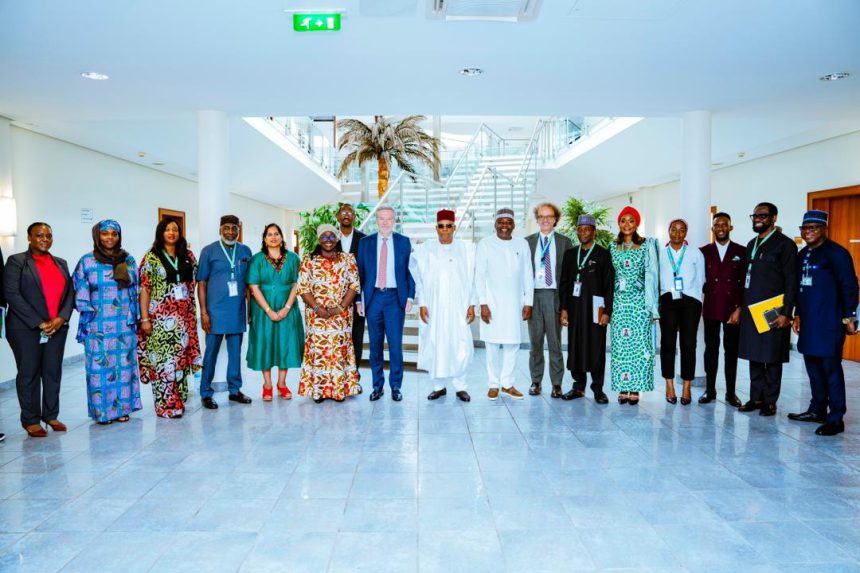When 26-year-old Aisha Usman finished university, she thought her degree was her ticket to a brighter future.
Instead, she found herself caught in the familiar loop of rejection emails and unanswered applications.
“Everywhere I went, they asked for work experience,” she recalled. “But how do you get experience when no one gives you a chance?”
That chance eventually came through the Nigeria Jubilee Fellowship Programme (NJFP) which is a government-backed, European Union–funded initiative designed to bridge the gap between learning and livelihood. Through the fellowship, Aisha secured a placement, a monthly stipend and mentorship that reignited her hope.
It was stories like hers that Vice President, Kashim Shettima recalled as he launched the second edition of the programme in Abuja. Speaking to a hall of Ministers, Corporate leaders, young professionals and NJFP fellows, Shettima dismissed the long term stereotype that Nigerian youths are lazy.
He said, “the young Nigerians we seek to serve are not asking for handouts and peanuts, only for a fair system that recognises effort.
“They are ready to build if we are ready to back them.”
The second phase of the NJFP aims to provide 20,000 new job opportunities for Nigerians under 30. It forms part of a broader plan to build a sustainable model that connects youths with organisations in need of fresh ideas and talent.
To make that vision real, Shettima called on corporate bodies and state governments to support the initiative, which seeks to mobilise $220 million in funding.
When we pool our resources together, align our intentions together, we create a multiplier effect that improves our economy.”
Backing his call, Managing Director of Sterling Bank, Abubakar Suleiman, described the programme as a “last opportunity to fix youth unemployment in Nigeria.” He urged other private sector players to contribute resources and placements, warning that the problem will persist if left to government alone.
Since its inception, the NJFP has enrolled over 14,000 fellows, offering them not just jobs but mentorship, coaching, and entrepreneurial training.
With the European Union contributing €44 million, the next target is ambitious to reach 20,000 jobs by 2026.
For fellows like Aisha, that target represents more than a number. It is the difference between despair and direction and proving capable when trusted with opportunity.







